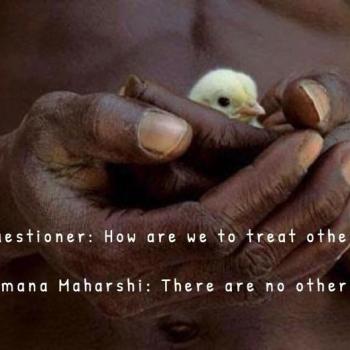Editors' Note: This article is part of a Public Square conversation on Capitalism. Read other perspectives here.
The word "capitalism" sets us up for a pointless debate in which people who all basically want the same things get into a screaming match. If we could just get away from that troublesome word, we'd discover that we don't disagree as much as we think. We'd also discover that what we really need is a debate over what it means for an economic system to "succeed" or "fail." Is it just about money, or does it have to do with something deeper in our humanity? When we're ready to talk about that, we'll make some progress.
A few years ago, I heard two of America's most prominent biblical scholars at a panel discussion on economics. One was notoriously right-leaning and the other was notoriously left-leaning, so everyone expected sparks to fly. And fly they did, because the panel debated whether Christians should support or oppose capitalism.
But I noticed something shocking: the two scholars actually seemed to agree about literally everything other than the meaning of the word "capitalism." They both wanted everyone to have the opportunity to earn a living by working in a productive job; they wanted everyone who was able to work to be working rather than slacking; they wanted people to live frugal, self-controlled lives; they wanted those with wealth to be radically generous with it; they wanted an entrepreneurial economy with lots of legal and cultural room for new business creation; and so on at some length.
Believe it or not, they even agreed about the basic outlines of government policy. They agreed that the primary function of government in the economy is to enforce the rules of property ownership and fair play. They agreed that a moderate public safety net was needed, but massive redistribution of wealth for its own sake was outside the bounds of legitimate government power—and could crowd out voluntary generosity.
That was both encouraging and discouraging. It was deeply heartening to see that we can really agree on what matters most. It was just as deeply annoying that nobody seemed to notice or care about this agreement; they were too busy debating whether "capitalism" was good or evil. The right-leaning scholar supported capitalism because (he said) capitalism is a system in which government protects property, enforces the rules of fair play equally, and leaves people free to be entrepreneurial and generous. The left-leaning scholar opposed capitalism because (he said) capitalism is a system that runs on materialistic consumer desires fueled by unmitigated greed and selfishness.
Has capitalism failed? That depends on what you mean by "capitalism." But it depends even more on what you mean by "fail."
What is the purpose of an economic system? To make us rich and comfortable? If so, despite our recent troubles, the overall picture is one of great accomplishment. Economic systems based on open access to market exchange; equal protection for the property rights of all, especially the poor and marginalized; and a culture of work, frugality, and opportunity are an astonishing success in every part of the world. Globally, rates of extreme poverty (living on $1/day or less) dropped 80 percent from 1970 to 2006, thanks to the spread of the modern entrepreneurial economy.
There is really no debate to be had about this. Call up some people in rural India on their cell phones. Ask them if they'd like to go back to living at starvation level and depending on western aid.
But what if the real purpose of an economic system is to provide a cultural context within which we can grow morally and spiritually—become better people? Here, too, the entrepreneurial economy, with all its imperfections, is still the best system humanity has ever discovered. Ancient economic systems had three basic principles: the little people exist to be slaves of the big people, don't trust outsiders, and anything your neighbor gains is a loss for you. More recently, socialist systems—whatever theories have been used to justify them—have always ended up doing little more in practice than reintroducing these evil, dehumanizing assumptions.
Open access to market exchange and secure property rights for the poor are not just good for growth, they're basic commitments of equal human dignity. And a culture of work, frugality, and opportunity is essential to teaching us how to love our neighbors. Above all, the entrepreneurial economy breaks down barriers of race, religion, and class; it teaches us to view people who are socially "other" as potential partners in fruitful work and exchange.
Yes, there are still important disagreements to be had. But we all want an economic system that respects equal human dignity. That means protecting everyone's rights and enforcing the rules of fair play. It means expanding opportunity by encouraging education and new job creation that give the poor a path from dependency to flourishing. Above all, however, it means teaching people that the economy is a place where we all work together in spite of our cultural differences to serve each other by creating value through our labor. That has not been a failure, but a resounding success.
4/9/2014 4:00:00 AM




